Even the day before people vote to elect the next Sri Lanka President on January 8, 2015, the question who will become the next President remains without a clear answer. If we go by media write ups it is going to be won on point- count rather than a knock-out punch. President Mahindra Rajapaksa is facing his former colleague from the Sri Lanka Freedom Party (SLFP) Maithripala Sirisena, who served as the Party General Secretary for 12 years are locked in a do or die election battle. Sirisena who quit the government and the ruling coalition is backed by former President Mrs Chandrika Bandaranaike who brings the support of Bandaranaike loyalists within the SLFP, former Prime Minister Ranil Wickremesinghe, leader of the opposition United National Party (UNP) and the dethroned Eelam war hero ex-General Sarath Fonseka who contested the President in the 2010 election.
The presence of Ms Chandrika Kumaratunga and other ministers who had quit the cabinet along with Sirisena when he announced his candidature reflected the level of resentment seething against the Rajapaksa family rule within the government and the Party. Sirisena’s war cry against Rajapaksa has been welcomed by not only UNP and other opposition leaders but by the civil society as well.
Though dissidence within the SLFP was brewing, it was the long-term loyalist Sirisena’s decision to quit the government to fight Rajapaksa that had set off the defection fever in SLFP. Rattled by the developments, Rajapaksa is reported to have used both money and muscle powers to stop it. It does not seem to have worked; as of now 26 MPs from the ruling coalition and hundreds of provincial councillors have crossed over to the opposition.
Surprisingly, Sirisena had been attracting surprisingly large crowds in his campaign meetings in some of the Southern Sinhala strongholds of Rajapaksa although he comes nowhere near Rajapaksa in national popularity rating. This indicates the steep decline of the image of Rajapaksa – the leader who was hailed after the victory in Eelam War five years ago as the modern day King Dutta Gemunu (the legendary Sinhala hero who defeated Sri Lanka’s last Tamil King Elara). Sirisena would win the election if he can convert the negative vibes against Rajapaksa into positive votes for himself. But can he do so? That remains an open question.
It was for this very reason Rajapaksa took a gamble in holding the presidential election two years in advance, sacrificing two years of his second term. He knew that if he delayed, the effort he had put in for a third term candidacy could come to naught.
Naturally, the two inter-related issues – Rajapaksa family rule and the executive presidency – have become the focus of opposition campaign against Rajapaksa. His aberrations have affected not only his personal popularity but also showed how a politically savvy President can manipulate the use of his constitutional powers unscrupulously to enable his family to amass money and power to rule the country as they liked in utter disregard to the parliament.
Sirisena Maithripala, common opposition candidate, in his manifesto has focused on three weaknesses of the Rajapaksa rule – corruption, cronyism and accumulation of power in the hands of the President and his family. The manifesto promises to replace the “present autocratic Executive Presidential System” by introducing a “constitutional structure with an executive that is allied to parliament through the cabinet.”
He hopes to build a corruption free “ideal country” in two stages: within 100 days form a multi-party National Unity Alliance government to address urgent issues, and then hold the general elections to repeal the 18th Amendment to the Constitution by bringing 19th Amendment to free national institutions like the judiciary, election commission etc from the President’s control in the next six years.
As opposed to this Rajapaksa’s manifesto is a follow up of his earlier manifestos of 2005 and 2010 presidential elections. Conscious of the focus on executive president’s powers, Rajapaksa proposes to amend the constitution based peoples’ concerns on the issue. Before last presidential election also Rajapaksa had promised to abolish the executive presidency; so there is not much credibility in his promise on this issue.
Though the breakaway SLFP elements together with the UNP combine pose a formidable threat to Rajapaksa though his political skill to overcome it should not be underestimated. He is better prepared for the election having made provisions in the 2015-budget to attract the support of the common man. Government servants have been given a hefty pay hike. Freebies including motorcycles at heavily subsidised rates have been provided to government field staff have been provided. Similarly, interest rates for deposits of senior citizens have been hiked to 12 percent.
On the flip side, unchecked corruption in public undertakings and government dealings and the misuse of army to crush peoples’ legitimate protests have soured the euphoria generated about Rajapaksa after the Eelam War. Even supporters of the regime have pointed out the much trumpeted mega infrastructure projects executed with Chinese loans have increased the debt burden without directly benefiting the people.
But the executive presidency issue is a regular feature of Sri Lanka elections. Almost every president of Sri Lanka has campaigned for either abolishing it or diluting his powers, but never acted upon it after getting elected. Even Rajapaksa made it a part of his campaign in the last elections but tightened his grip on power rather than loosen it after he was elected.
And family rule is nothing new in Sri Lanka; after all the Bandaranaike family produced two prime ministers and a President–; Ranil Wickremesinghe also has a family pedigree in politics.
As for corruption, almost all mainstream political leaders are hauling their own baggage of sleaze and corruption, though Sirisena has a comparatively clean image.
So the question is how many of his staunch Southern Sinhala voters and SLFP loyalists will vote for Sirisena on these issues? Rajapaksa has been pampering the rural segment and generally his support is believed to have remained intact. And more than that, many Southern Sinhalas consider Rajapaksa as responsible for restoring Sinhala pride by crushing Tamil insurgency. Sirisena needs to get at least 10% of Rajapaksa loyalist votes to be victorious. This swing vote may well decide the fate the winner and loser.
However, fair winds appear to be blowing for Sirisena now bringing the support of rightwing Buddhist political class which is unhappy with Rajapaksa and the Muslim and Tamil minorities. The Sinhala Buddhist party the Jathika Hela Urumaya (JHU), a long term ally of Rajapaksa and SLFP coalition, deserted him to support Sirisena. The JHU disenchanted with Rajapaksa’s poor governance, cronyism and corruption. Most of JHU voters are likely to vote for Sirisena though the political wheeler-dealership of Rajapaksa has managed to split the JHU to deplete its ranks.
The minority Muslims and Tamils (including “Up-country” Tamils of Indian origin) form an important voting segment. The Muslim community had generally supported powerful leaders who are likely to win. Though Muslim parties had been supporting Rajapaksa and their leaders held important ministerial posts. However, during the last three years, they have been disillusioned with Rajapaksa’s failure to curb extreme Buddhist fringe organisations like Bodhu Bala Sena (BBS) which have been attacking Muslims, destroying their places of worship, business and property. So the two major Muslim parties the Sri Lanka Muslim Congress (SLMC) and the All Ceylon Makkal Congress (ACMC) walked out of the UPFA coalition to support Sirisena.
Sirisena’s stand is similar to Rajapaksa’s on some of the basic demands of the Tamil National Alliance (TNA). These include support for international investigation on war crimes, tracing thousands of missing persons, and devolution of full powers to provincial councils. Even Rajapaksa sarcastically remarked that Tamils should vote for him because he was a “known devil” rather than the unknown angel. After a lot of introspection, the TNA which absolute majority in the last Northern provincial council and has a sizeable following in Eastern Province has decided to support Sirisena. The leadership has explained the decision was taken to end Rajapaksa’s authoritarian rule and restore democratic governance.
After the Eelam War Rajapaksa has restored and upgraded power, road and rail infrastructure destroyed in Northern Province. Though this has improved the quality of life, Tamils have been unhappy with Colombo’s insensitivity to their sentiments in many issues including military interference in their daily lives and use of goons to disturb their political activity.
Sections of Tamil Diaspora including overseas elements of LTTE have asked Tamils to boycott the election. Some of the TNA leaders also have echoed the boycott call. But most of the Tamils can be expected to ignore the boycott call and participate in the election. They must be still ruing their mistake in boycotting the 2005 presidential election after the LTTE “ban” on their participation. This deprived Ranil Wickremesinghe of Tamil votes and enabled Rajapaksa to win by a narrow margin.
The votes of Tamils of Indian origin are likely to be divided between the rival candidates as the two dominant Tamil parties - Ceylon Workers Congress and the Democratic Peoples’ Front are supporting the incumbent and the challenger respectively.
Thus cumulatively Sirisena would seem to gain most of the minority votes. But reports already indicate that the UPFA thugs are indulging in violence against Sirisena’s supporters. Even a few pot shots from a revolver were fired at a meeting where he was addressing. And the suspect is a deputy minister! So will Sirisena be allowed to win by Rajapaksas’s muscle power? Will minorities be allowed to vote in peace? Already the dirty tricks department of Rajapaksa is working hard to mislead the public with innuendos against the opposition. There are reports of army pressurising the public to vote for Rajapaksa in Northern Province and misuse of government official machinery has been reported.
If the election goes through peacefully, Sirisena may well get the swing votes to defeat Rajapaksa. We will have to wait and see.
(Col R Hariharan, a retired Military Intelligence specialist on South Asia, served with the Indian Peace Keeping Force in Sri Lanka as Head of Intelligence. He is associated with the Chennai Centre for China Studies and the South Asia Analysis Group)
Published Date: 8th January 2014




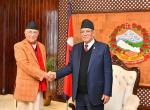
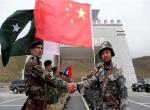

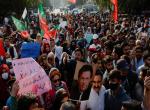
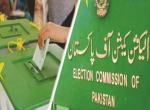
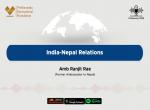
Post new comment